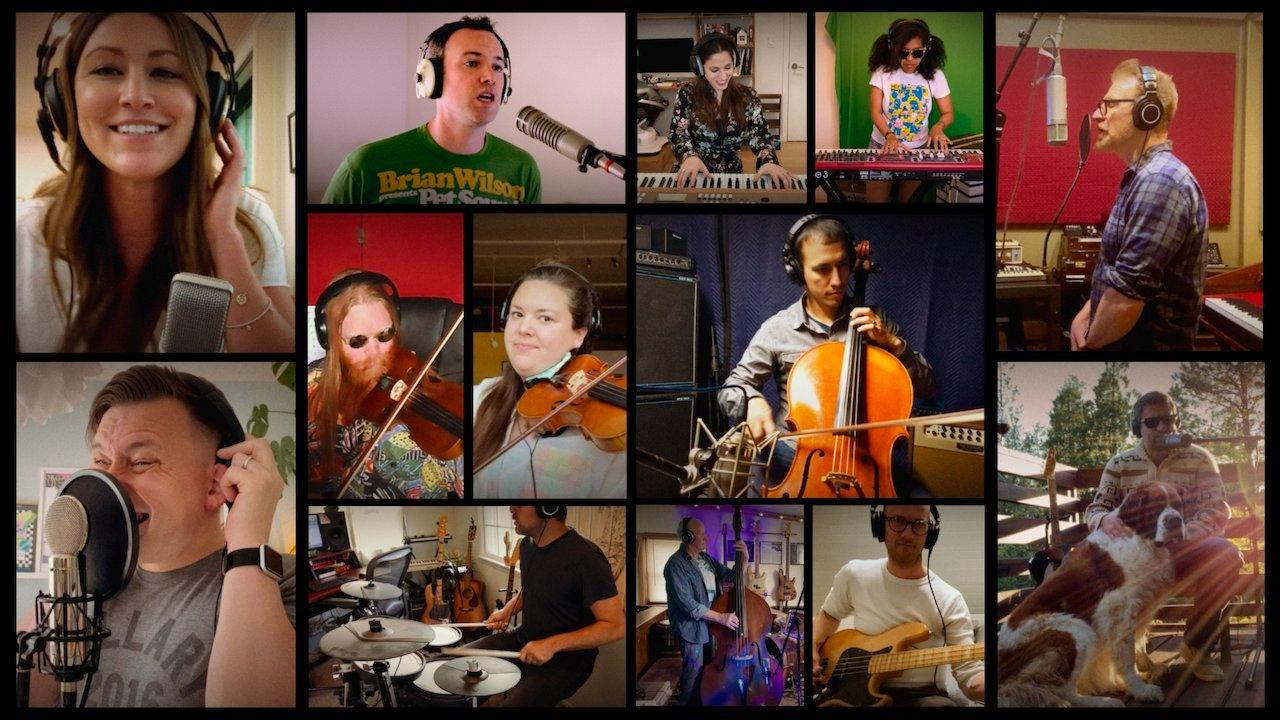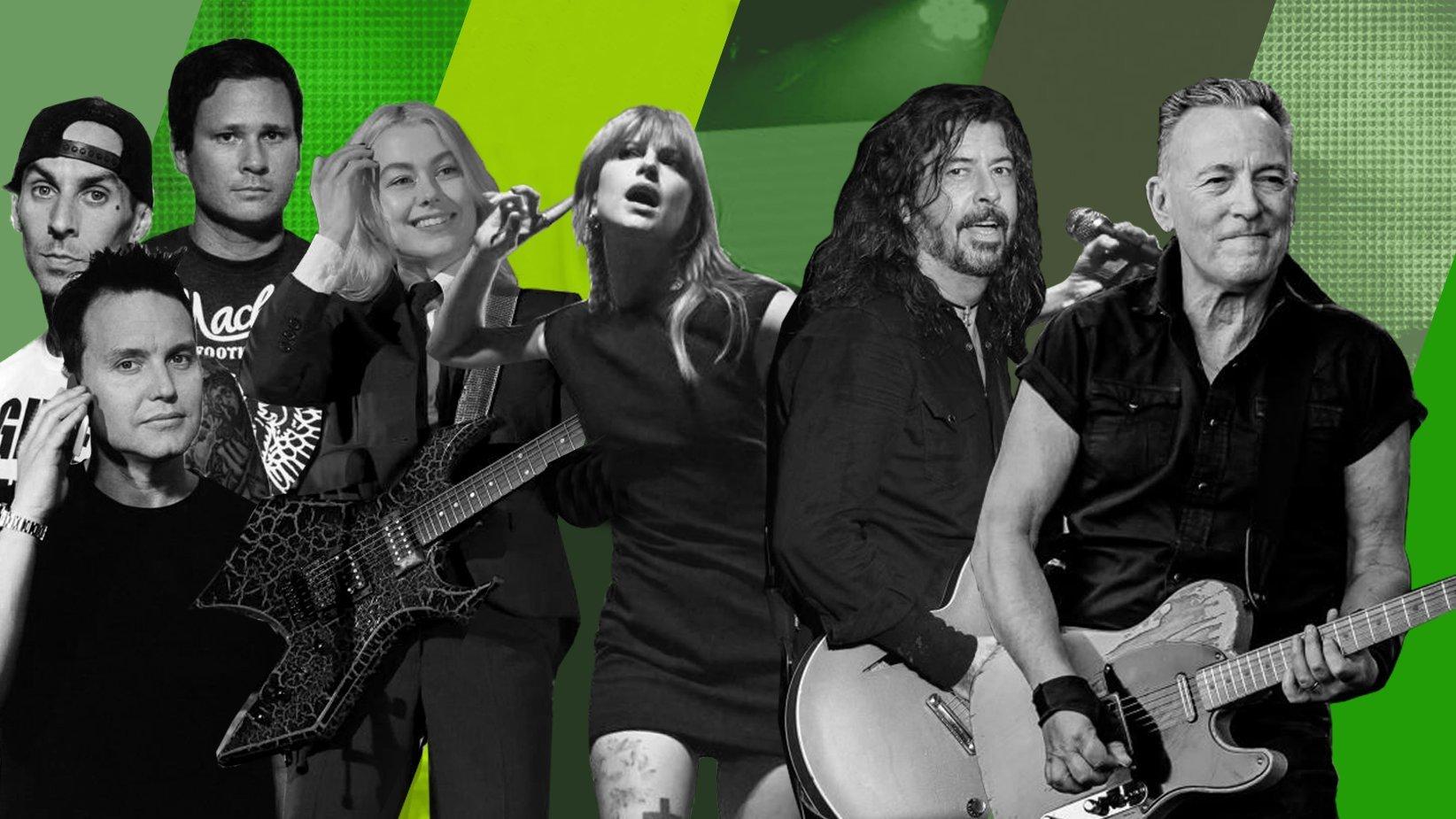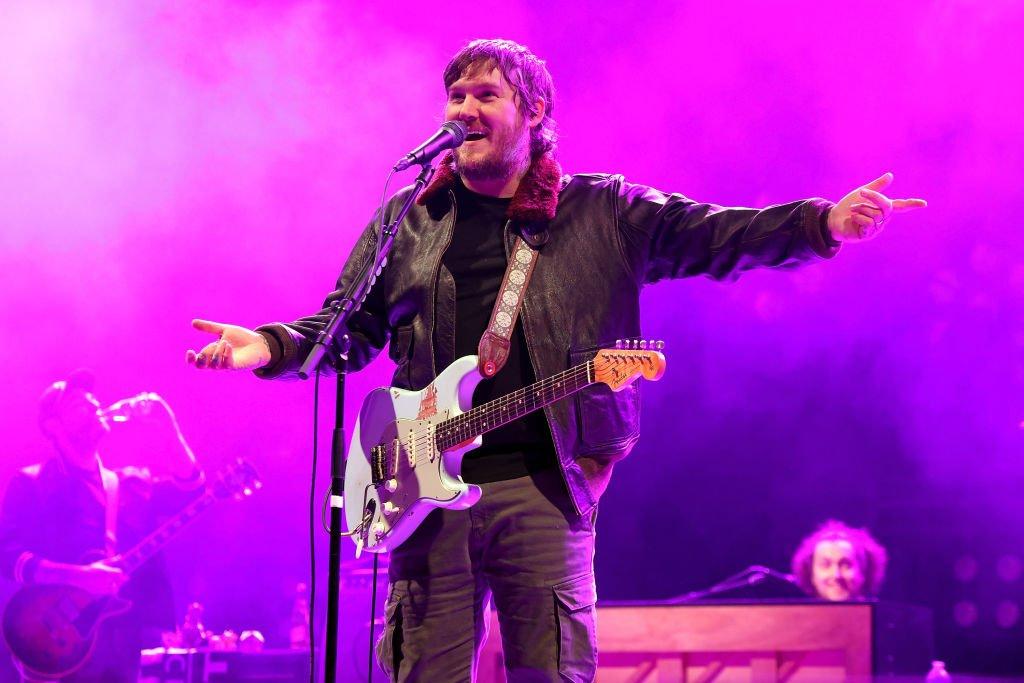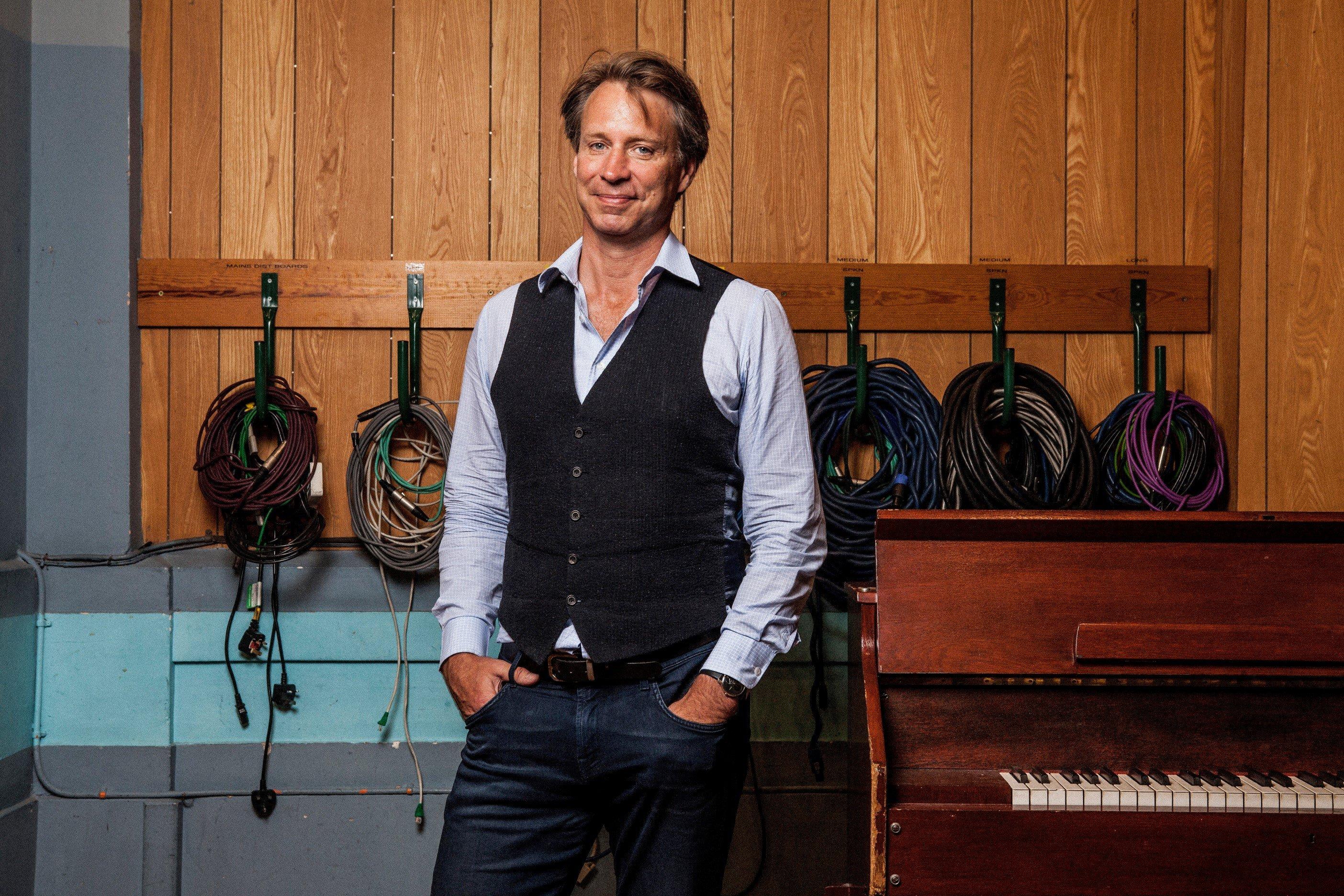The saxophonist, flutist, and keyboardist Sarah Johnson Melkeraaen's father was her number-one fan. A lover of soul artists like George Clinton, Lou Rawls and The Temptations, Julius Johnson danced at any opportunity—at the supermarket, after bowling a strike, or in response to good news of any type. Sometimes, his dancing made his daughter feel shy, but today, she misses it more than anything. Granted, Johnson wasn't particularly a Beach Boys fan. But when Melkeraaen—who records and performs as Lady Albatross—took part in a massive cover of America’s Band, it ended up a testament to his goofy, music-loving spirit.
In a YouTube cover of the exuberant "Good Vibrations” recorded last June, created to give a world in lockdown a much-needed lift, she played flute alongside almost 30 other musicians in virtual collaboration. Released this year after a months-long delay, the cover grew so popular that it caught the attention of Brian Wilson himself.
But because Johnson died of COVID-19 the month of its making, he's not around to cut a rug in response.
<style>.embed-container { position: relative; padding-bottom: 56.25%; height: 0; overflow: hidden; max-width: 100%; } .embed-container iframe, .embed-container object, .embed-container embed { position: absolute; top: 0; left: 0; width: 100%; height: 100%; }</style><div class='embed-container'><iframe src='https://www.youtube.com/embed//hWCkCSO8h9I' frameborder='0' allowfullscreen></iframe></div>
"In my mind, I'm picturing being able to tell him, and he definitely would have had an ear-to-ear, massive grin," Lady Albatross, who came onto the project by word-of-mouth, tells GRAMMY.com from her home in Odda, Norway. “He would have given me a really big hug and told me how proud he was."
Making The Cover
"Good Vibrations," which a 24-year-old Wilson concocted as the centerpiece to 1967's aborted Beach Boys album Smile, is only the latest tune that organizers Doc Crotzer and Matthew Smith have tackled. In the confusing, suffocating early weeks of lockdown, they cast out a net to record a quarantine-friendly cover of Tom Petty's "Free Fallin'." "We thought maybe a few other people might be interested in doing it with us but didn't expect too many people," Smith tells GRAMMY.com.
Through a network of friends recommending friends, like in Lady Albatross's and Jones' case, they followed up the Petty tune with a pitch-perfect rendition of Bruce Springsteen's "Born to Run."
"By then," Crotzer says, "more people had seen the video and reached out to us, so we were able to grow our Social Distance Session Band, which added to the fun and challenge. 'Good Vibrations' came out of trying to answer 'How do we top "Born to Run'" with our group?'"
To help manifest their sun-kissed dream, Crotzer and Smith contacted Anders Fehon and Edwin Herder of Beach Boys musical replicators The Fendertones. Then, they recorded a scratch track for the instrumentalists, and Crotzer sang rough takes of each vocal part to place the singers properly in the harmony stack.
Sarah Johnson Melkeraaen and her father, Julius Johnson.
Two of those singers were MInhee Jones, a London-based alternative pop artist, and her friend, Celeigh Chapman, a country singer originally from Bakersfield, California. The recording process helped Chapman exhume the song from TV ads and oldies stations and examine it anew.
"For us, it was cool to pull apart the layers because [most of us] appreciate it in a passing way or understand that it's revolutionary for the time," she tells GRAMMY.com. "But then, to pull it apart and learn a specific part and see all those parts stack up, I think, gave us a whole other level of appreciation for them doing that at that time, considering where the technology is now and where it was then. When you look underneath the hood, there's a whole other level of, "Oh, this is actually why this is so omnipresent in our culture and has been able to sustain generations of fans and musicians."
Stitching together nearly 30 socially-distanced takes wasn't easy, but Crotzer and Smith found ways to circumvent potential hiccups. "For the instrumental part of the track, we let people do their own thing a bit more," Smith says, "but everyone was still playing to a guide track so that everything would stay in sync when we got the tracks back."
Near the end, the number of tracks so overwhelmed his laptop that he had to buy a better computer. "Fortunately, we had an awesome editor named Chase Johnson cutting it," Crotzer says. "He made it look easy and seamless."
Hitting A Roadblock
The month they recorded the cover, the George Floyd protests hit. "Good Vibrations" wouldn't come out in June as planned.
While the musicians never explicitly mentioned current events over the email chain, Chapman says there was an unspoken agreement that the timing wasn't right. In the midst of global racial upheaval, releasing a happy-go-lucky cover may have come across as blithe or tone-deaf. The following months brought mostly silence. "I remember sending an email asking, 'When is this coming out?''" Lady Albatross remembers.
<blockquote class="twitter-tweet"><p lang="en" dir="ltr">Watch this amazing video from Social Distance Settings of "Good Vibrations" featuring Minhee Jones and Jesse Hernandez, and musicians around the world. Their goal for this performance is to make everyone SMiLE. Hope you enjoy it! <a href="https://t.co/QwmGbLWGQS">https://t.co/QwmGbLWGQS</a></p>— Brian Wilson (@BrianWilsonLive) <a href="https://twitter.com/BrianWilsonLive/status/1354063648319221760?ref_src=twsrc%5Etfw">January 26, 2021</a></blockquote> <script async src="https://platform.twitter.com/widgets.js" charset="utf-8"></script>
In the months leading to his death, Lady Albatross's father became inward and uncommunicative; she's not certain he even knew about the "Good Vibrations" cover. Lady Albatross was already saddened her father would never hear it, but after a while, it seemed like nobody would. As the months stretched out between George Floyd's killing and the fractious 2020 election, the "blossom world" Wilson sang of seemed more out-of-reach than ever.
Jones felt wary of a world seemingly drained of the Beach Boys' promise. "I was pretty down around that time because it was so polarized," she tells GRAMMY.com. "You saw some disappointing ideals coming out of people. Just a lot of ignorance, I guess. It didn't seem like the right time to put out anything too light."
Going Viral
On the heels of the inauguration and with vaccinations starting to roll out, it finally felt right to drop "Good Vibrations" on YouTube in the spirit of healing and brighter days ahead.
"I remember when I got the email from Doc and Matt saying, 'It's up! It's finally here! It's done!'" Jones says with a grin over Zoom. "It was right after the inauguration. I think they posted it on Facebook just like that: 'This could not have come at a better time. So many good vibrations. A weight has been lifted.' I thought the inauguration was amazing. We were all watching it around the world. I was over here with my glass of champagne in London. I thought the timing of that was spot-on."
Almost immediately, the video was met with global excitations—and Brian Wilson's. "Watch this amazing video from Social Distance Settings of 'Good Vibrations' featuring Minhee Jones and Jesse Hernandez, and musicians around the world," he tweeted. "Their goal for this performance is to make everyone SMiLE." At press time, the video was on the cusp of 50,000 views.
Overall, the response has bowled over Crotzer and Smith, who had merely organized the video for the fun, fun, fun of it.
"I couldn't believe it when Brian Wilson shared our cover on his social media," Crotzer tells GRAMMY.com. "The first rock 'n' roll music I heard as a kid was written by him and got me into music in the first place. Waking up to see that Brian liked it was an incredible way to start a day. Just absolutely surreal.”
A No. 1 hit in its day, "Good Vibrations" was sparked by Wilson's curiosity about the human emotions that dogs pick up on. Had the crew had released their cover back in June, it might have clashed with the will of the universe. But because they released it in a long-awaited moment of political optimism, "Good Vibrations" acted as a beacon of light through the gloom—and elicited a hard-won smile from thousands of viewers.
And Lady Albatross, who sticks out in the virtual crowd in her hand-crocheted octopus hat, says her old man would be right there with them.
"He would have given me a really big hug and a kiss on the forehead," she says, envisioning his response to the Brian Wilson-approved video. And, of course, "He would have done a little happy dance."
Dave Mason On Recording With Rock Royalty & Why He Reimagined His Debut Solo Album, 'Alone Together





